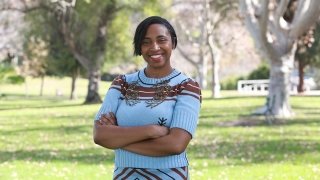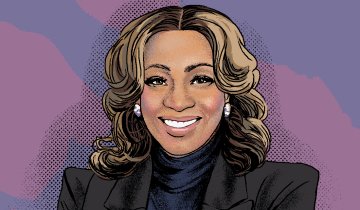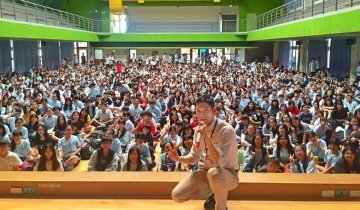Raven Barrow MFT ’12 is a two-time USC alumna, having earned her undergraduate degree in 2007 before receiving her master’s in Marriage and Family Therapy (MFT) from USC Rossier.
She started her education at the Foshay Learning Center, one of hundreds of students to participate in USC’s Neighborhood Academic Initiative (NAI), a seven-year pre-college preparation program. Since completing her master’s, she has worked at the Federal Public Defender’s Office while also founding a nonprofit called Self-Actualize Me. She is now conducting practicum work for her PsyD in Clinical Psychology from Alliant: California School of Professional Psychology, with a multicultural community clinical emphasis.
We spoke to her about her multilayered approach to building community.
How did you become an advocate for people with so many diverse needs?
My journey wasn’t always so clear. It kind of began when I was a student in the NAI program, at the Foshay Learning Center, which really pushed me to be an advocate for the community, to give back. Then I fell in love with forensic psychology as an undergrad at USC and became interested in the intersection between psychology and the law. This in turn led me to the Federal Public Defender’s Office, where I’m an advocate for individuals who can’t afford representation.
So it was my legal work that actually led me to the MFT program because I wanted to be part of the intervention for people who don’t have resources. I wanted to give them someone to talk to before their problems became so significant that they had to turn to a life of crime. In the MFT program, I learned how you can really become an advocate for individual change by creating second order change within the community.
What do you mean by second order change?
It’s not just one person changing their thinking about something, but it’s creating change in the system. It’s changing the way generations of families think about their outlook on life, helping families become more resilient and then passing that on generationally.
At your nonprofit, Self-Actualize Me, you talk about a family-centered form of actualization. What is the origin of that philosophy?
In the NAI program, the entire family had to be part of the learning process. My school knew the importance of parents being fully involved in the program in order for it to be effective. For example, their Saturday Academy was required for parents as well. My mom learned a lot that she could utilize in supporting me through this process. Then in the MFT program, I became more familiar with ecological theory. In order for individuals to change, we had to transform all of those things that are impacting individuals, whether directly or indirectly, so that includes their family. What I’ve learned in my practicum training experience is that sometimes it’s not enough to just provide therapy. The therapy goes beyond what is happening in the therapeutic space in the room. It’s also about how we’re impacting parents and the community.
Is this similar to what you call the wrap-around model?
Yes, that entails working with the client at the individual level and placing them at the center of the work. They are a part of determining what their treatment looks like. But you’re also looking at what’s going on within the home. Did Mom lose her job? Did Dad lose his job? And if that’s the case, then you’re also advocating to help Mom and Dad get back on their feet. You’re also linking families to community resources because once they’re done with treatment, they will need to have a natural support system they can rely on. Wrap-around takes on poverty from an ecological standpoint because we’re also helping families become more resilient. We’re empowering families, we’re changing the way they interact generationally, and hopefully we’re making things much stronger and changing the system.




